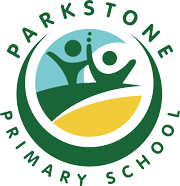‘Reception children get opportunities to explore numbers all the time.
Daily mathematics lessons help them to count with speed and confidence.’
‘Pupils talk with pride about the ‘leading learner’ badges
they get for reading regularly, arriving on time and trying hard.’
‘In Reception, phonics is taught every day.’
‘The geography curriculum is a strength of the school.
Leaders have carefully set out what they want pupils to know by the end of each year.’
‘The governing body challenges leaders on the actions they are taking to improve the school.’
‘One pupil told the
inspector that, ‘school is amazing because teachers include everyone.’
‘Classrooms are oases of calm. As a
result, pupils are happy. They feel safe at school.’
‘Pupils enjoy the books their teacher reads to them.’
‘Teachers have strong subject
knowledge and use geographical vocabulary with precision.’
‘All pupils know the school rules.’
‘Pupils who are falling behind in their phonics get extra help to catch up.’
‘Teachers model language and sounds accurately. This means that Reception children get off to a strong start with their reading.’
‘Teachers use ‘pinny time’ to revisit the sounds that children have been
taught, as they learn through play.’
‘All
adults have high expectations of pupils’ behaviour.’
‘Pupils could talk about rainfall and temperature graphs, as well as the impact of the River Nile on Egyptian settlements.’
‘Leaders
have provided teachers with the phonics training they need.’
‘Pupils thrive at this inclusive school.’
‘The reading curriculum is well organised.’
‘Staff are happy, and morale
is high.’
‘In mathematics, teachers make daily checks on pupils’ understanding. This ensures that the work pupils do is suitably challenging.’
‘Teachers say that leaders listen to their views and help them to manage their workload.’
‘ Subject leaders benefit from meeting staff in
other trust schools to exchange ideas and good practice.’
‘Pupils discuss and analyse texts during their
‘reading mastery’ lessons.’
‘Pupils are very positive about their
mathematics work.’
‘Leaders’ relationships and sex education and health education
curriculums give pupils an age-appropriate understanding of healthy relationships.’
‘Children in early years learn phonics as soon as they start school.’
